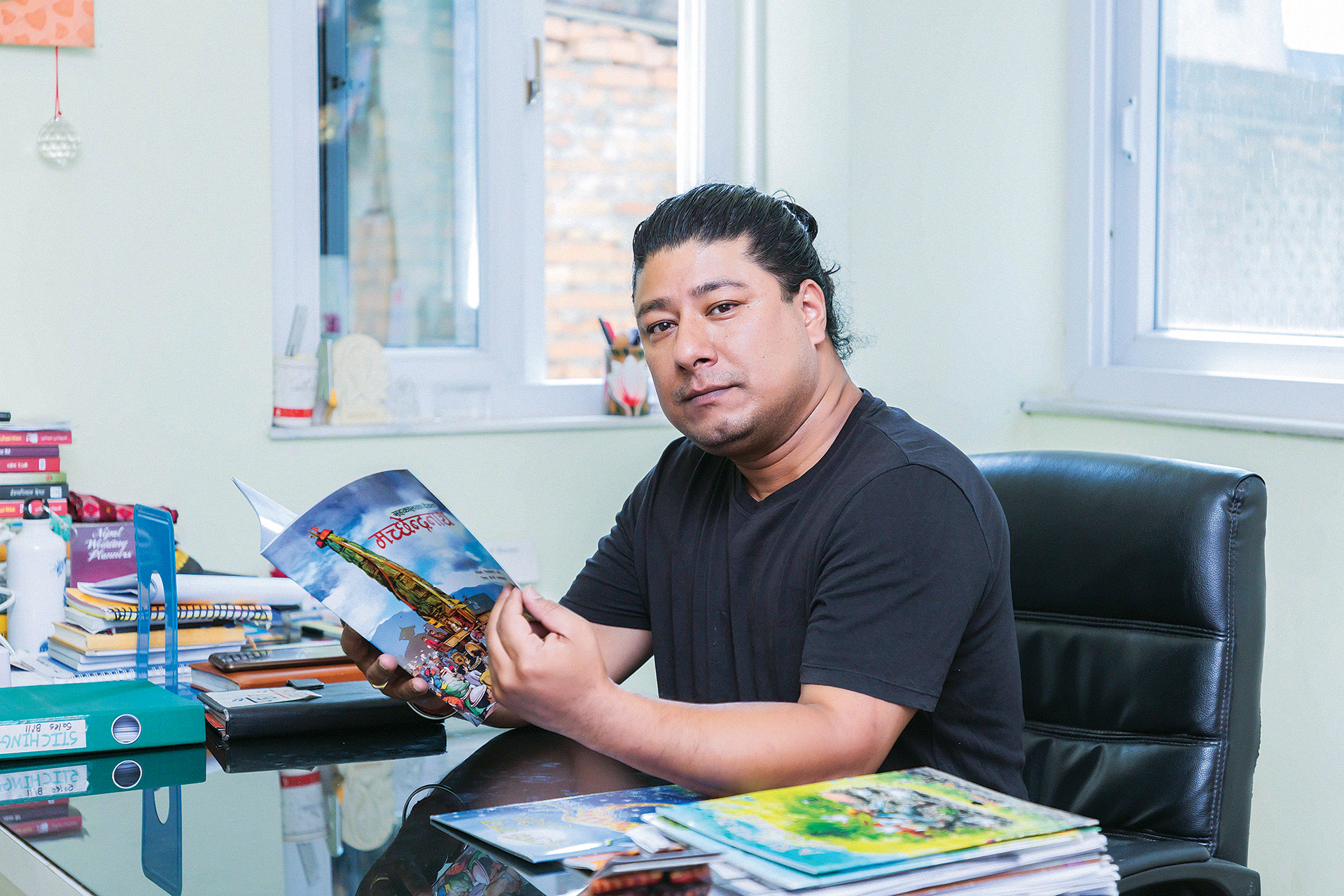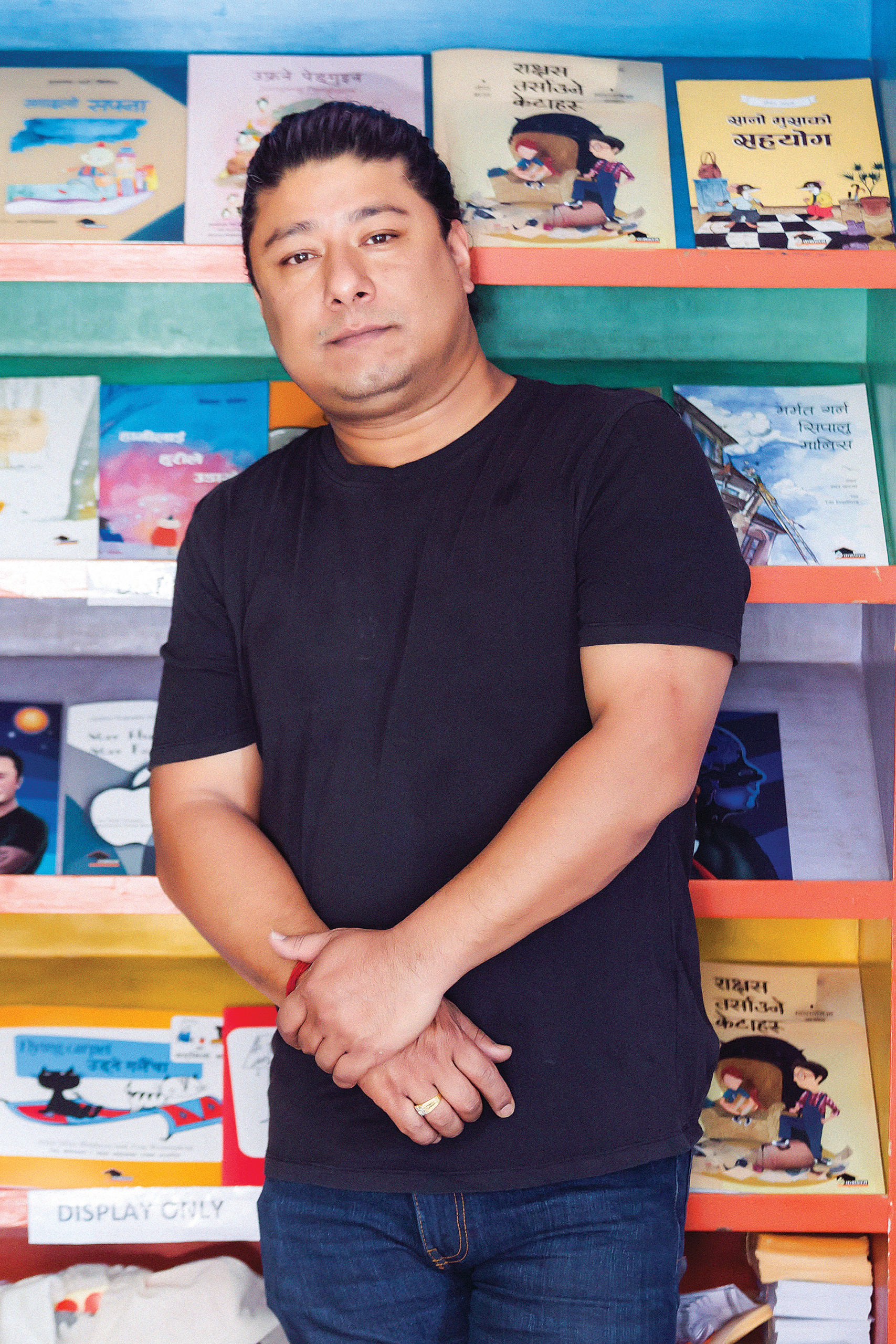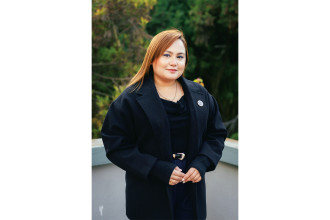
Kathalaya, an independent publishing company based in Kathmandu was established in 2007, has been focusing on publishing quality children’s books in Nepali, English and other regional languages. The publication house has today expanded to include popular literature and youth-centric books under the imprint ‘WeRead’. Kathalaya has also released Nepal’s first e-book reader application called ‘WeRead App’ featuring books by Nepali writers and publishers.
Rajeev Dhar Joshi, Co-founder and Director of Kathalaya Inc, says the journey has not been easy but it has been an enriching one.
“I was previously involved with Room to Read since its inception and have helped establish around 450 libraries in government schools in 22 districts,” he says. While working there, he noticed there was a dearth of quality books for children in Nepal. “There were very few publication houses focused on children’s books and whenever we approached them to publish such books they would say that Room to Read is a social organisation and if it decides to leave the country who will buy the books,” he recalls. And that is when the idea to start a publication house with emphasis on children’s books came to him.
Joshi confides that prior to establishing Kathalaya, he had tried his hand in many businesses but failed each time. “ I was a bit apprehensive initially and decided to stick with my job because that was my bread and butter but the idea of setting up a publication house was consistently at the back of my mind,” he reveals. “It was in 2007 that I mustered the courage and with the help of a friend decided to take the plunge and opened Kathalaya,” he shares, adding that it was a very humble beginning with an investment of only Rs 2 lakhs. In the initial year, Kathalaya published only 15 books and later they started publishing 31 titles a year.
In this issue of Business 360, we spoke to Joshi about the five things that have impacted his work.

Finding opportunities in problems
While working on our objectives, we realised our local authors and illustrators and even the children had not got the opportunity to experience quality international publications. We had started publishing children’s books but at the back of my mind, I was always wondering why our local authors had not been able to create interesting content for children and we realised it was due to limited access to books in the local language. There are good English titles but our local authors and illustrators have not been able to access or read them due to the language barrier. We, thus, decided to translate some of the world’s best content into Nepali so that authors and illustrators would have access to them and at the same time our children would also have access to the best books in the world. One of the first books we worked on was a photographic book called Time-to-Discover series published by Scholastic in 2009. We also published two encyclopedias; one on astronomy and the other on basic science for children. One always has to look for opportunities when doing anything in life and opportunities come in different ways. In 2006, I had the chance to participate in an international conference where I was able to meet publishers whom I had been dreaming to meet. That conference became my gateway for connections and I started publishing books from Hachette UK and Clavis Publishing of Belgium, among others. Our objective was also to develop and promote Nepali authors, and we believe these international books in Nepali will provide access to them to understand and internalise international content. We now have 135 titles from around 20 countries and we have published books related to diverse subjects. For instance, we have a children’s book from Sweden which talks about migration and another on democracy. This is not a political agenda, it is just to teach young minds about how to practice democracy and it took us four years to translate it. We have the Rikki series from Clavis too which talks about friendship and determination. These books are a big asset for children. If they do not have access to such books when they are small, then maybe they will have access later on in life which is already too late. When children don’t get to read quality content, they lose out. That’s why we have tied up with around 20 publishers from various nations. And that is why I keep saying a leader is someone who has a vision. A leader has to dream and work towards achieving it.Developing a reading culture
We started facing a big challenge from the early 2000s when a new education system was set up and the involvement of private players in the education sector started rising. It has been such that parents think if they send their children to an English medium school, they will have a better education. What we tend to forget is that the base language is always the mother tongue. If a student is taught their mother tongue initially and they become fluent in it, then at some level, if they are introduced to some other language, it will be easier for them to understand both languages. However, these days, students are taught both languages simultaneously from a small age and we can see most are neither proficient in their mother tongue nor in English. The other challenge is that teachers are always prioritising only course books. We have limited ourselves and our children to those seven to eight text course books annually. As a result, our knowledge, reading fluency, comprehension get limited. It is only in a very few schools and families that children are encouraged to read books besides their subject matter. Our generation was a bit lucky because we had access to comics and we developed a reading habit early on. These days it is next to impossible to find comics and there are very few books that interest children. Moreover, schools have been forcing them to only read course books. So, we can say the reading trend has declined since the early 2000s and now due to mobile technology it has almost died out among children. I believe there are three things needed to develop a reading culture – availability, accessibility and positive enforcement. Schools need to provide a list of 10 to 15 books a year and recommend or at times make it compulsory for students to read them. If this happens till the students are in Class 6 then not only will they develop a reading habit but will also be able to make choices on the books they prefer. Lastly, parents too need to encourage their children to read at home.
Sticking to the core objective
Over the years I have tried my hand in many businesses and failed but I never let those failures stop me from trying. At the moment, I am enjoying my time at Kathalaya. When we started there were a handful of publication houses but now there are 17-18 publishers. Over 300 titles get published for children annually which is remarkable. When talking about the market, it is challenging because the reading culture in Nepal is declining and schools too are not buying children’s books. However, we started out to reverse that trend and to some extent we have been successful. The other reason why I love what I am doing today is I get to travel widely and meet many interesting people. If I was not involved in this business, then maybe I wouldn’t have so many friends from across the country and the world. Kathalaya has provided a lot of opportunities for myself and for the children of Nepal. The publishing business has also taught me that whatever we do we need to give it our best. Never spread yourself too thin unless you have mastered one thing. Also, we need to stick to the core objectives of what we set out to do. As I mentioned earlier, we have a few objectives and we stick to them. Everything else revolves around those objectives and that is why I feel we have been doing good in the market at the moment.Inspiration can come from anywhere
I personally feel that you cannot have just one source of inspiration because as life passes, we go through different phases and meet so many people who teach us a lot of things. In school, maybe a teacher was your inspiration but, in the workplace, maybe a colleague is an inspiration. I have derived inspiration from many people. For my core understanding of publishing, it is my mentor, Arvind Kumar, who was with Scholastic India then. In Nepal, I have had the opportunity to work with Anil Chitrakar who also has taught me many things. And most of the time when I think of my personal growth then it would be my father who gave me a good education. He encouraged me to try out new things even though I had failed in the initial businesses I had started. He helped me develop confidence and that got me into this publishing business. These days I have many international friends with whom I interact on a regular basis and they too inspire me a lot. They give me information about the business scenario in their countries which helps me make decisions for the market in Nepal. I actually wanted to be a pilot when I was young but couldn’t finish my science studies and shifted to management. So, there will be times when things don’t work out but one must not give up hope and keep persisting. At times, you can derive inspiration from events too. For instance, in 2014, I had the chance to visit Sweden where I realised the value of children’s books. Will technology replace books. Not really. The whole conversation right now across the globe is about digital. In early 2000 when technology was introduced people were saying technology will replace paper but in 2023, the market share for e-books is still stuck at 15% of the overall book market whereas 85% is physical books. After Covid we have seen that people are more inclined towards reading physical books rather than e-books. People have actually started visiting bookstores. In India, for example, some bookstores are opening seven to eight new outlets every year. The demand for physical books is increasing worldwide. It is only in Nepal that we have not seen bookstores being opened because there is no reading culture. The other paradigm shift now is from e-books to audio books. In Nepal’s context, the market for physical books is very low and the market for e-books or audiobooks is negligible. When technology was first introduced, we thought the market for physical books will vanish but on the contrary, it is rising. The only change we have seen in the last couple of decades is that the e-book market is transforming into the audiobook market. READ ALSO:
Published Date: June 10, 2023, 12:00 am
Post Comment
E-Magazine
RELATED Hi5





